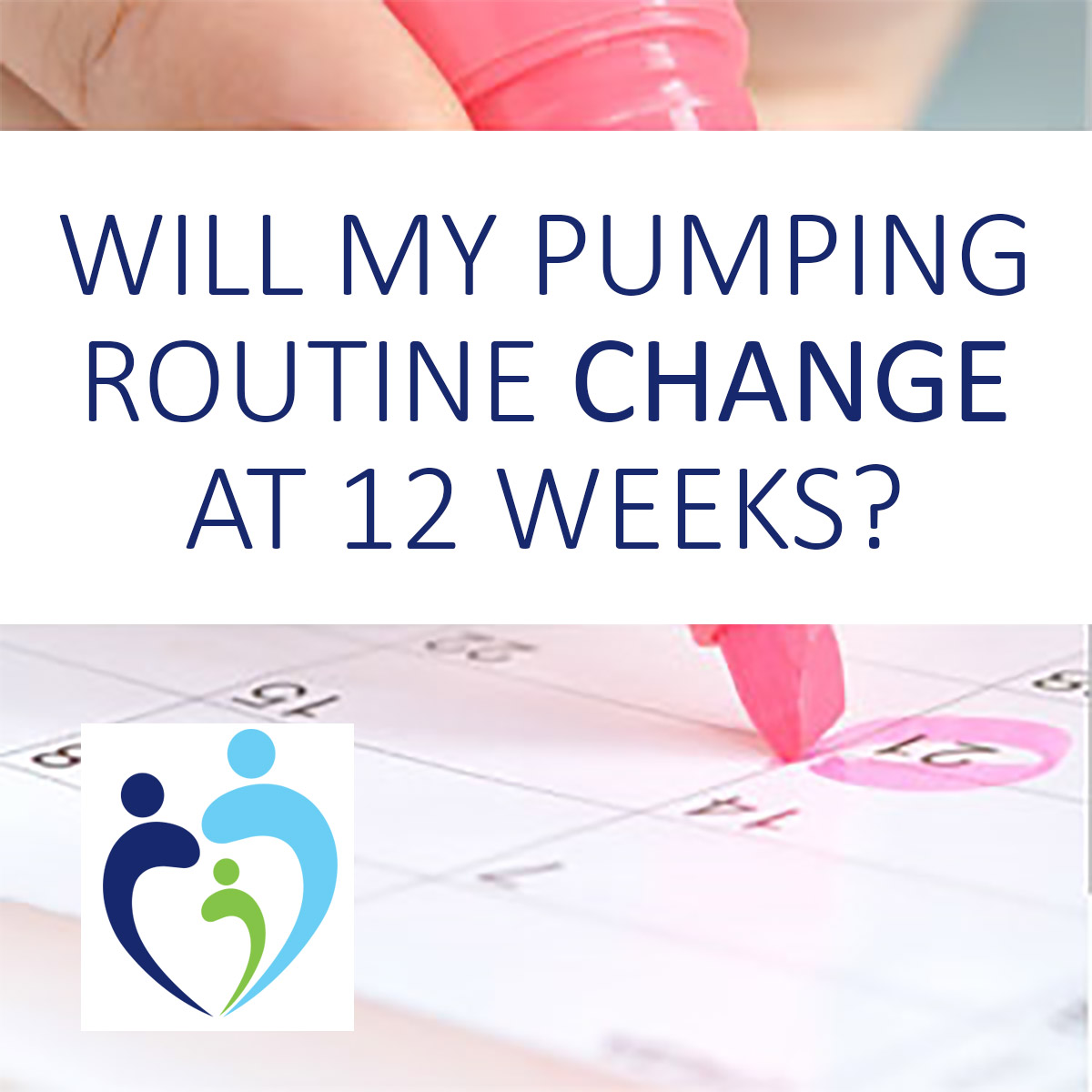Breastfeeding Routine: 12 Week Benchmark

Will My Breast Pumping Routine Change at 12 Weeks?
We’ve said it before and we’ll say it again: every woman’s nursing experience differs—whether it’s your first child or your fifth, if you’re exclusively pumping or just supplementing with expressed milk, regardless if you’ve read every book on the subject or rely solely on first-hand experiential learning. Your experience and your timeline will be unique.
But just as a guideline, here’s an overview of the first three months—what you might expect, how to prepare, and how to augment your breast pumping routine as you reach the 12-week mark.
Week 1: Just after birth, your breasts produce colostrum—a yellow, vitamin, protein, and antibody-rich substance. You will be nursing every two to three hours. After two-five days you will begin to secrete transitional milk. Although this milk is thinner and more plentiful, you will continue to nurse every two to three hours. When you’re pumping try to mimic this same schedule to prime your breasts and properly stimulate the milk production. (For more on the changes in breast milk visit an earlier blog Breast Milk 101 – Three Stages of Breast Milk).
Week 2: Although you might not recognize it at the time (ahem, sleep deprivation anyone?) you have established a semblance of a nursing pattern and your milk production is likely well on its way. But as your baby is likely experiencing a growth spurt, he or she will increase demand. Nurse and pump accordingly.
Week 3-4: If you have not begun pumping and you plan to return to work after a customary three-month maternity leave, this is the time to start. It’s important both to get your child accustomed to taking a bottle (either exclusively or intermittently) as well as to establish a stored supply of breast milk.
Week 6: No significant surprises should arise between two and six weeks. That being said, take time to pause, breathe, and congratulate yourself at this point. You have accomplished so much—producing all the nourishment for your child while your body has simultaneously been recovering from childbirth. Now you should begin to feel stronger, healthier, and your milk flow should begin to regulate (i.e. less engorgement and nipple tenderness).
Week 12: This is a major benchmark. Pat yourself on the back or splurge on a professional massage because you deserve it. You should feel like a breastfeeding and pumping pro. And because you’re oh-so good, junior is about ready for another growth spurt, demanding more frequent and/or longer feedings. If you’re exclusively pumping, you want to be aware of this change so that you put in slightly longer or more frequent pump sessions. If you’re pumping for supplement—this is great news—as you’ll have more milk on hand to express by pumping to stimulate a second letdown after a nursing session.
More good news! Because your baby (and your boobs) are now more experienced, nursing sessions at this point typically take between five and seven minutes while pumping sessions are similarly shorter.
Even more good news! By breastfeeding (and supplementally or exclusively pumping) for at least three months, your child has a 27% reduced risk of developing asthma when no family history exists, key development in your child’s brain is enhanced, and your child’s risk for developing Type 1 Diabetes is reduced by 19-27%
So, to answer the original question: your breast pumping routine will change at 12 months, mostly because it’s gotten easier and you’re producing more (and producing more efficiently).
Keep up the amazing work, mama.
*Note: This information was compiled by our resident Moms in the Know and is not informed by medical or legal experts. For guidance and support along your breastfeeding and pumping journey always consult your physician and/or lactation consultant directly.
Sources:
https://www.gerber.com/key-topics/breastfeeding/articles/the-benefits-of-breastfeeding/the-stages-of-lactation
http://www.fitpregnancy.com/baby/breastfeeding/breastfeeding-guide-whole-first-year
http://www.thealphaparent.com/2011/12/timeline-of-breastfed-baby.html
http://www.thebump.com/a/how-breastfeeding-changes-as-baby-gets-older





